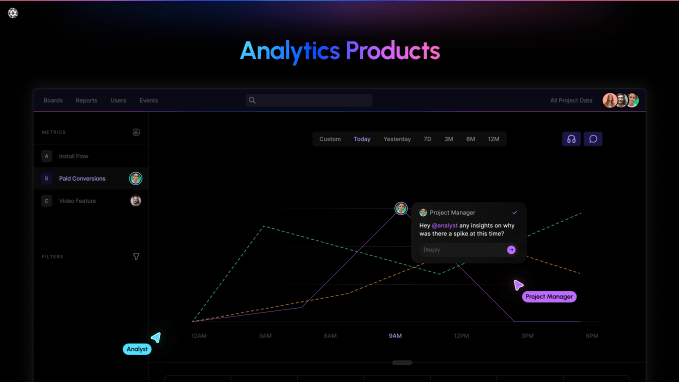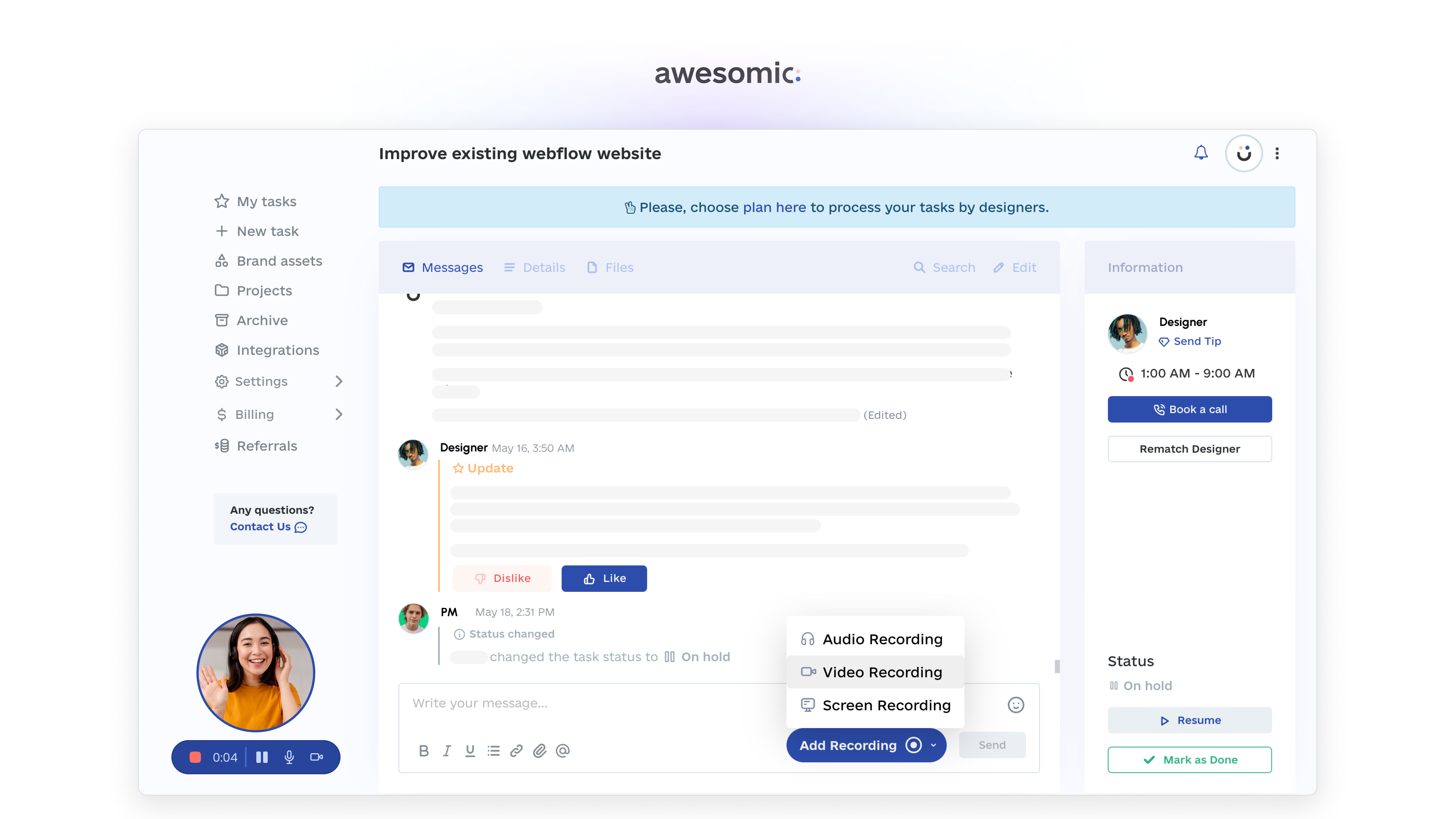Online collaboration has become routine thanks to productivity apps like Google Docs and team design platform Figma, among others, but there are still hosts of internet-connected applications where users cannot interact with colleagues, add notes or otherwise collaborate with one another. That’s something a new startup called Velt wants to fix with the launch of a toolkit that allows any developer to add collaborative features to their app in less than 30 minutes.
The Y Combinator-backed startup says it’s leveling the playing field by allowing developers to pick and choose which collaborative features they need, whether that’s contextual commenting as in Google Docs, Figma-like live walkthroughs, Loom-style recording features or Slack-style huddles. To support its journey, the startup has raised $2.77 million in seed funding to accelerate its plans.
Launched last year, as part of YC’s Winter ’22 batch, Velt was founded by former Google Product Manager Rakesh Goyal, who previously worked on Google’s AR team before leaving to develop his own startup. Initially, he had been focused on a different idea when he left Google in 2020, but then the COVID pandemic happened, shutting everything down. As he continued to work with a fully remote and distributed team, he found the experience lacking.
“I was used to tools like Google Docs and Sheets, which are already very collaborative. But outside, I was very surprised to see that most tools are not like that,” Goyal explains. “You have to constantly take screenshots to work with other people and that just didn’t make sense to me.”
Instead of being able to natively share and collaborate, that is, his team members would take screenshots and share them through Slack, which meant the original apps were lacking engagement and their users were suffering, says Goyal. Another problem he identified was that collaborative features tend to be expensive and difficult for developers to build and maintain over time.
As a result of their experiences, the team pivoted to building a set of developer tools that would “blur the boundaries between in-person and online experiences,” says Goyal.
With Velt’s JS SDK, developers can choose the features they want to add to their platform — whether that’s commenting, huddles or video or voice recording — and then customize the user interface to meet their needs.
The features are also powered by AI in some cases, as with the recording feature where the transcript is automatically generated and a summary of the text is provided. AI is being used to categorize the different comments left on a project, as well. For example, it can label comments with tags like “feature request,” “feedback” or “bug.”
A third AI feature is called a “contextual copilot,” which Goyal describes as a human-to-AI collaborative experience where you can use prompts to do things like rewrite the copy when working in a website design tool, for instance, or further down the road, redesign the webpage itself, edit video or interact with other data you see on the screen, depending on the app.
Today, Goyal says Velt’s primary use cases are within three verticals: creative tools, business analytics tools and CRM tools. In the first category, you’d find things like website builders, video editing tools and video creation tools.

Image Credits: Velt example
Business apps might include things similar to Mixpanel or Amplitude (which are not customers), while CRM or task management tools round out the third category as those where people may want to have conversations around the projects or ideas they’re working on.
The company also offers another product called Superflow which is the sidekick for its SDK and is aimed at marketing agencies that want to collaborate on design and marketing assets like websites, videos, or PDFs with their clients.
The startup won’t disclose its number of customers (it’s approaching three digits) nor its revenue, but says the company doubled revenue in the past two months. Goyal notes that a couple of Velt’s bigger clients have upwards of a million monthly users of their apps in the U.S., which requires custom pricing above the standard usage-based pricing. Otherwise, pricing starts at $999 per month for up to 5,000 monthly active users.
Velt’s website lists HR analytics software eqtble, design platform awesomic, website building platform zoomforth and knowledge management software parc as customers, among others. Velt’s customers are fairly evenly split between Superflow and its SDK, though the sales cycle for the latter is longer.

Image Credits: Awesomic using Velt
Investors in Velt’s seed round, which closed last March, include YC, Spider Capital, Amino Capital, First Row Partners and angel investors from Google, Stripe, SAP and others. The 10-person team, meanwhile, is remotely distributed across three countries, including the U.S., U.K. and India.
Goyal notes that AI will play a big role in the startup’s efforts going forward.
“AI will become a very important part and we have a large part of our roadmap dedicated to that, where we are not only going to enhance human-to-human collaboration through AI, but we are also going to enhance human and AI collaboration in context,” he says.”We will do whatever it takes through contextual copilots [and] through better AI features infused in existing collaboration experiences,” Goyal adds.
